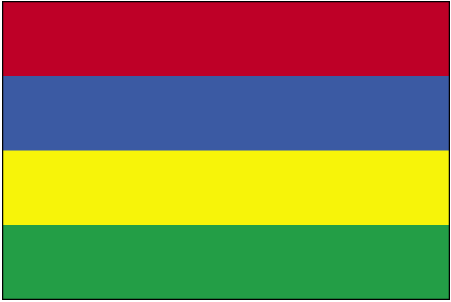

Main · Country Introduction · Country History · Country Econmy · Country Maps · Reference ·
ICT plays an important role in any growing economy, which is also the case for Mauritius. As I pointed above, Mauritius’s government has been expanding ts ICT industry to not only meet its economic demands, but also to turn the country into giant computer manufacturer for the main land of Africa. Before I delve into details about how Mauritian government is trying to turn its country into a computer hardware producer, I would first begin expounding on the current ICT’s infrastructure that it have in place.
Mauritius has a small land line telephone network, but is very efficient. However, with a growing economy, the land line telephone network needs to be expanded. As of 2008, land line subscription accounted for 30% of the population according to the CIA fact book of the country. The mobile telephony is booming, and around 80% of the population subscribes to it according to same source. There are many private broadcasting radios, however, the TV broadcasting is mainly dominated by the Mauritian Broadcasting Corporation, which is owned by the government and operates 3 analogs and 10 digital TVs stations according to the CIA fact book on the country.
The government’s project to make Mauritius a cyber island began in January 2005, according to Neil Ford, who authored an article called Mauritius: Island leads world in IT coverage, which is published in the African Business Journal in March 2005 (Ford). The first thing the government did according to Ford, was to develop a networked of antennas that would provide nationwide broadband wireless coverage. By March 2005, the wireless project was successfully running, had profited every sector in the economy, and attracted international IT firms such as Microsoft, HP, and Indian software companies.Another important that attracting more IT firms in addition to Mauritius’s new IT infrastructure is that Mauritians speak multiple languages including English, French, Hindi, and Chinese. However, the illiteracy of Mauritius’s workforce in the information technology field was challenging to the government acknowledge Ford. So, in order to overcome the challenge, the government had started investing in adult education centers and installing IT program in schools, and as a result, more Mauritians started entering into the IT industry workforce (Ford).
The objective of the Mauritius’ government for this ambitious cyber island project is to make the country the number one hardware manufacturer for the entire African market. With the investment it has made so far, I believe that the government will achieve its aim, possibly in the next few years, however I would rather advise the government to invest simultaneously in its education system as well in research and development to encourage IT innovation not only in the IT hardware sector, but also in the IT software. By doing so, Mauritius will become not only the Taiwan of Africa, but also the Silicon Valley of the continent.
This small island of 1.3 million people of diverse ethnic groups has overcome many challenges to get to where it is today. These diversely ethnic groups have been able to work out their differences in order to maintain a solid democracy with sounds institutions. From a sugar-based economy in 1968, the successive governments and the people of this small nation have turned around and diversify its economy to the benefit of every single one of them.
Being keenly aware of the impact of ICT in its economy, as well as its potentiality for development, the Mauritian government has set up a challenge to invest heavily in the ICT field to make its country the number one computer hardware manufacturer and supplier for the African market.
Main ¶ Country Introduction ¶ Country History ¶ Country Economy ¶ Country Maps · Reference ¶